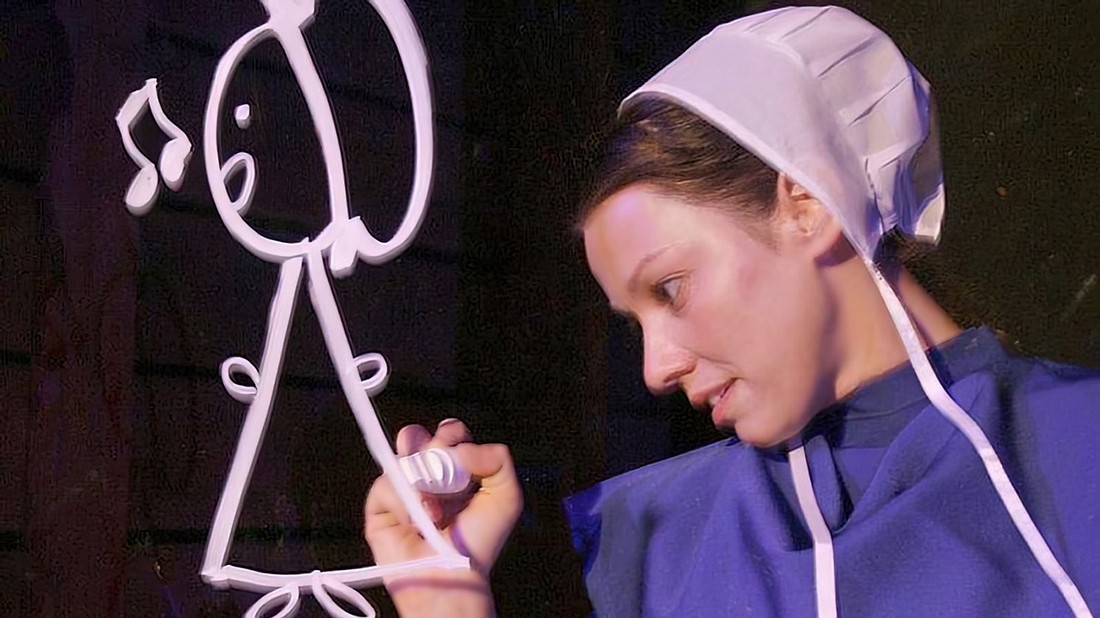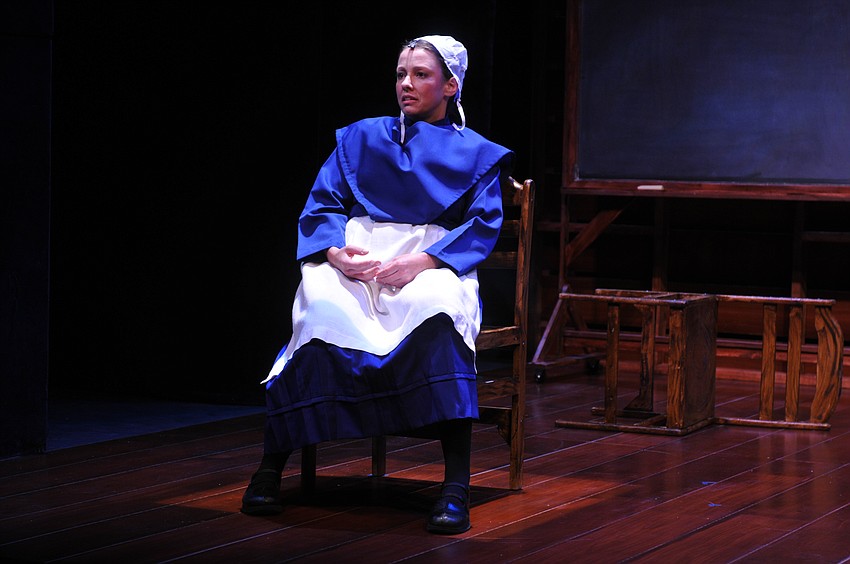- November 13, 2025
-
-
Loading

Loading

Jessica Dickey’s “The Amish Project” (2009) explores a rare response to gun violence. This one-woman show opens Tree Fort Productions’ 2024 season; it stars Katherine Michelle Tanner, Tree Fort’s producing artistic director.
Tanner’s deeply passionate about the seven characters she brings to life. While they’re fictional, they’re based in reality. This American tragedy is, too. In 2006, an outsider opened fire at an Amish schoolhouse in Nickel Mines, Pennsylvania. He shot 10 girls and murdered five. The gunman then committed suicide.
Uncontrolled outrage would be the survivors’ typical response. But this Amish community was far from typical. In an act of “radical empathy,” they chose to forgive what they couldn’t understand. The fiction of Dickey’s play flows from this miraculous fact. In the following conversation, Tanner explains why the play is a small miracle for her.
“The Amish Project” is a once-in-a-lifetime opportunity. It’s a beautifully written character study of seven unique individuals. Bringing them to life is thrilling to me, both as an actor and a producer.
Empathy. I try to put myself inside their skins, and see through their eyes. To me … they’re everyone I've ever loved and anyone who's ever loved me. When I’m building my characters, I try to find a common humanity. That goes beyond asking, “What does this character want?” I ask myself, “How deep does their want go? How far are they willing to go to get it?” To me, that's really what acting is.

She stays fairly close. But this isn’t an exploitive true crime story — and I wouldn’t be so passionate about it if it was. I’d say … Jessica is telling the truth through fiction. The characters in “The Amish Project” are fictional and shouldn’t be misconstrued as real people. But they experience the same tragedy — and respond with the same radical empathy and forgiveness.
I feel the same way — and I get verklempt just thinking about it! But that miraculous forgiveness is the key to this play. And I feel it’s the key to life on this planet.
Yes, exactly — I think that’s beautifully articulated. We’re all going to have to go down this road — and I really mean this. If we don’t forgive, we’re carrying that burden of hurt and bitterness every step of the way. If we do forgive, we can get down the road with the least amount of burden for ourselves and others. It’s such a powerful truth — and that’s why it’s such a powerful play. Expressing that on stage … it’s the reason I got into theater. If I could, I’d do this play every day for the rest of my life.
Yes, and my original director, Todd Olson, is also returning to direct our Tree Fort production. It’s such a joy to work with him again!
No. I think now is the perfect time! Her play really opens people’s eyes. “The Amish Project” shows us the good, the bad and the ugly of humanity. It’s a powerful way to learn from history and try not to repeat it. I strive to be honest as an artist and a human being. This play lets me do both. It’s a wonderful creative opportunity for me — and cathartic for the audience.